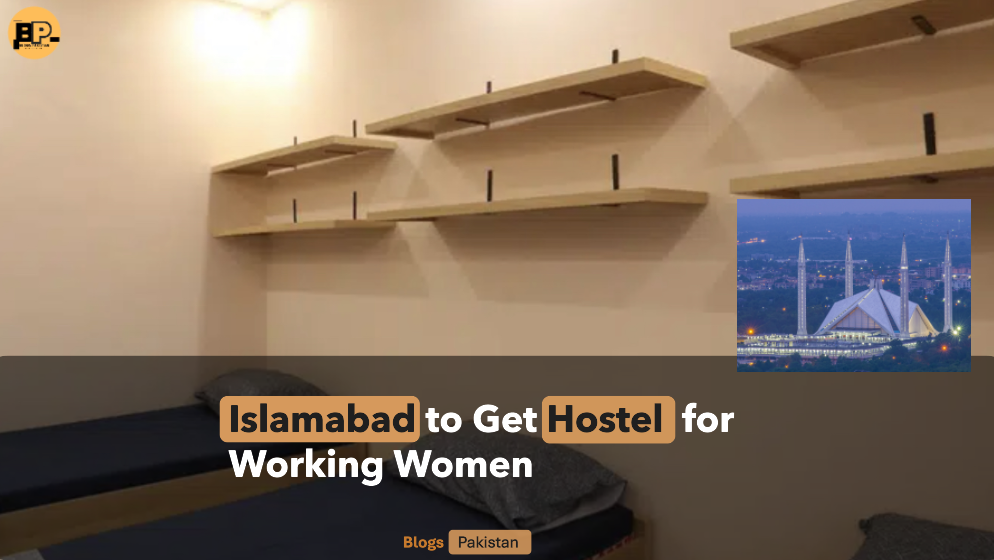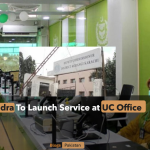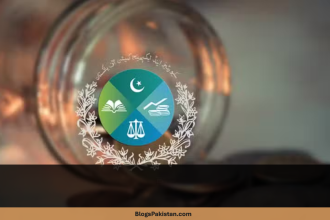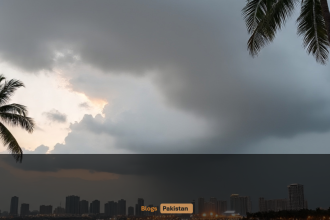Meta Description: Discover how Islamabad’s new hostel for working women addresses safety, affordability, and community needs. Explore its features, impact, and significance for gender equality in Pakistan.
Introduction
Islamabad, Pakistan’s capital city, is a hub of opportunity for professionals, students, and entrepreneurs. Yet, for many working women, finding safe, affordable, and convenient accommodation remains a significant challenge. In a landmark move to address this gap, the government recently announced plans to establish a dedicated hostel for working women in Islamabad. This initiative promises to empower women by providing a secure living space, fostering independence, and supporting their professional growth. In this blog, we delve into the details of the project, its potential impact on women’s lives, and its role in advancing gender equality in urban Pakistan.
The Need for Safe Spaces for Working Women
Islamabad’s rapid urbanization has attracted a growing number of women pursuing careers in sectors like IT, education, healthcare, and civil services. However, the city’s housing landscape often fails to cater to their unique needs:
- Safety Concerns: Many working women face harassment or insecurity in shared apartments or poorly managed hostels.
- High Costs: Rent in secure neighborhoods like F-7 or Blue Area is prohibitively expensive for mid-career professionals.
- Social Stigma: Conservative cultural norms sometimes discourage families from allowing women to live alone or with non-relatives.
- Lack of Community: Isolated living arrangements can lead to loneliness, affecting mental health and productivity.
These challenges force many women to compromise on their career aspirations or depend on male family members for accommodation. A dedicated hostel addresses these issues holistically, creating an environment where women can thrive personally and professionally.
The Islamabad Working Women’s Hostel: Key Features
While official blueprints are still under development, authorities have shared preliminary details about the hostel’s structure and amenities:
1. Strategic Location
The hostel will reportedly be built in a central area such as G-8 or G-9, ensuring easy access to major office districts, public transport, and commercial hubs. Proximity to metro stations and bus stops will reduce commute times and enhance convenience.
2. Safety and Security
- 24/7 Surveillance: CCTV cameras, biometric entry systems, and trained security personnel.
- Guest Policies: Strict visitor regulations to ensure resident privacy.
- Emergency Protocols: Partnerships with local police and helplines for rapid response.
3. Affordable Living
- Subsidized rent rates for low- and middle-income women.
- Flexible payment plans, including monthly or quarterly options.
4. Modern Amenities
- Furnished single and shared rooms with attached bathrooms.
- High-speed internet, study lounges, and coworking spaces.
- Cafeteria serving nutritious meals at subsidized rates.
- Fitness centers, green spaces, and recreational areas.
5. Community Building
- Mentorship programs and skill-development workshops.
- Networking events with industry leaders and entrepreneurs.
- Counseling services for mental health and career guidance.
Why This Initiative Matters
The hostel is more than just a housing project—it’s a catalyst for social change. Here’s how it could transform lives:
1. Economic Empowerment
Affordable housing enables women to save money, invest in further education, or start businesses. For rural migrants, the hostel provides a foothold in the city, allowing them to access better job opportunities without financial strain.
2. Breaking Cultural Barriers
By normalizing women’s independence, the hostel challenges stereotypes that equate living alone with “risky” behavior. This shift can encourage families to support daughters, sisters, or wives in pursuing careers far from home.
3. Enhanced Productivity
A safe, supportive environment reduces stress and distractions, enabling women to focus on their work. On-site amenities like coworking spaces also foster collaboration and innovation.
4. Building a Support Network
The hostel’s community-centric design helps women connect with peers, share experiences, and navigate workplace challenges. Such networks are invaluable for career growth and personal resilience.
Broader Implications for Urban Development
Islamabad’s hostel sets a precedent for other Pakistani cities grappling with similar issues. Karachi, Lahore, and Peshawar—all of which have large populations of working women—could replicate this model to promote inclusive urban growth. Additionally, the project aligns with global Sustainable Development Goals (SDGs), including:
- SDG 5 (Gender Equality): By providing women equal access to opportunities.
- SDG 11 (Sustainable Cities): Through safe, inclusive urban spaces.
The initiative also complements Pakistan’s Working Women Welfare Fund, which offers financial assistance and legal aid, signaling a broader commitment to women’s rights.
Challenges and Considerations
While the hostel is a commendable step, its long-term success depends on addressing potential pitfalls:
- Sustainability: Will subsidies and maintenance costs be feasible amid economic inflation?
- Capacity: Can the hostel accommodate demand? Reports suggest Islamabad has over 50,000 working women, but the initial facility may only house 200–300 residents.
- Cultural Resistance: Some conservative groups may oppose the idea, necessitating awareness campaigns to highlight the hostel’s benefits.
- Inclusivity: Will transgender women or women from religious minorities have equal access?
To mitigate these issues, partnerships with NGOs, corporate sponsors, and international donors (e.g., UN Women) could provide additional funding and expertise.
The Road Ahead
The Islamabad hostel could inspire a nationwide movement. Expanding the project requires:
- Private Sector Involvement: Real estate developers and tech companies could sponsor hostels or offer internships to residents.
- Policy Support: Legislation mandating safe housing for women in all major cities.
- Awareness Campaigns: Highlighting success stories to shift public perception.
For working women, this initiative is a beacon of hope. As one prospective resident, Ayesha Khan (a 28-year-old software engineer), shared: “This hostel isn’t just a roof over my head—it’s a chance to grow without fear.”
Conclusion
Islamabad’s working women’s hostel is a groundbreaking step toward gender equality and urban inclusivity. By addressing safety, affordability, and community needs, it empowers women to claim their space in Pakistan’s workforce and society. While challenges remain, the project symbolizes progress—a reminder that when women thrive, cities thrive. As construction begins, all eyes will be on Islamabad to lead the way in redefining what it means to build a city for everyone.










